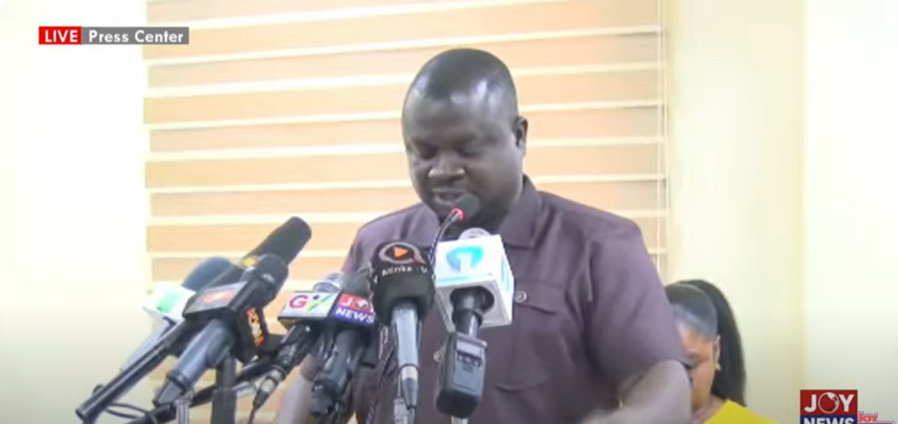President of the Ghana Journalists Association (GJA), Albert Kwabena Dwumfour, has urged the media to fact-check information rigorously as the country heads into elections, stressing that accurate reporting is essential for maintaining public trust and the credibility of journalism.
The GJA, the Ghana Independent Broadcasters Association (GIBA), and the Media Foundation for West Africa held a joint press conference on Tuesday, July 16 to condemn the rising instances of irresponsible journalism in the country.
The GJA president addressing the press said: "The GJA, GIBA, PRINPAG, MFWA, and New Media Association, therefore, caution all journalists, media practitioners, and media organizations to be cautious of their utterances and reportage."
"They must be mindful of their platforms to prevent the country from slipping onto the path of violence with its attendant consequences."
He emphasized that this caution should not be seen as a restriction on free expression but as a call for responsible journalism.
This, he says is because "There are decorous means and avenues for journalists and citizens to express their opinions loud and clear."
Mr Kwabena Dumfour assured that the GJA remains committed to defending media freedom, which includes championing media professionalism.
He also highlighted the need for the media to fact-check, referencing an incident involving inaccurate reporting on Chef Smith.
"We advise the media that, henceforth, apart from corporate bodies, political parties, and identifiable groups, any person or group inviting the media for a press conference must have their background checked to ascertain their veracity," he stated.
Executive Secretary of the Media Foundation for West Africa, Sulemana Braimah, echoed these sentiments, urging media houses to be cautious of unethical statements made by some journalists.
He warned that irresponsible utterances could lead to severe consequences, including the revocation of licenses.
"There are laws, and at any point in time, the frequencies can be taken back," he said, emphasizing the importance of proactive measures to prevent violations.
Credit: Emma Ankrah

